APUSH Causes of the American Revolution
1/42
There's no tags or description
Looks like no tags are added yet.
Name | Mastery | Learn | Test | Matching | Spaced | Call with Kai |
|---|
No analytics yet
Send a link to your students to track their progress
43 Terms
Boston Tea Party
A raid on three British ships in Boston Harbor in which Boston colonists, disguised as Mohawk Indians, threw several hundred chests of tea into the harbor as a protest against the British Tea Act.
Coercive Acts
Also known as the Intolerable Acts. Several British laws designed to punish colonists for their role in the Boston Tea Party.
French and Indian War
This struggle between the British and the French in the colonies of North America was part of a worldwide war known as the Seven Years' War.
Proclamation of 1763
A proclamation from the British government which forbade British colonists from settling west of the Appalacian Mountains, in order to avoid conflict with the Native Americans.
Stamp Act
A tax that the British Pariliament placed on newspapers and official documents sold in the American Colonies.
Writs of Assistance
Part of the Townshend Acts. It said that the customs officers could inspect a ship's cargo for smuggled goods without giving a reason.
Boston Massacre
British soldiers fired into a crowd of colonists who were teasing and taunting them. Five colonists were killed. The colonists blamed the British and the Sons of Liberty and used this incident as an excuse to promote the Revolution.
Lexington and Concord
The first battle of the Revolution in which British soldiers went after the stored weapons of the colonists in Concord, Massachusetts.
Olive Branch Petition
An offer of peace sent by the Second Continental Congress to King George lll.
Committees of Correspondence
Organization founded by Samuel Adams consisting of a system of communication between patriot leaders in New England and throughout the colonies.
Boston Port Bill
Closed down Boston Harbor until the damage from the tea party was paid for in full.
Administration of Justice Act
Part of the Intolerable Act where royal officials of Massachusetts were tried in Britain or other colonies - not in Massachusetts.
Quebec Act
Act that was meant to organize the colonies, but instead just cut off western land claims of Massachusetts - meant to punish the colonists.
Massachusetts Government Act
Act in which Massachusetts became a Royal Colony and appointed General Gage the new governor.
Continental Congress
The legislative assembly composed of delegates from the rebel colonies who met during and after the American Revolution.
French and Indian War Debt
The reason Parliament gave for raising taxes on the colonies. Parliament felt that the colonies should help pay for their own protection.
"Taxation without Representation"
Rallying cry of the Sons of Liberty because the Stamp Act was placed on them by a Parliament in which they had no elected representation.
Natural Rights
Rights that belong to all people from birth.
Britain needed money to pay for the war with France.
Why were the colonists taxed by the British government?
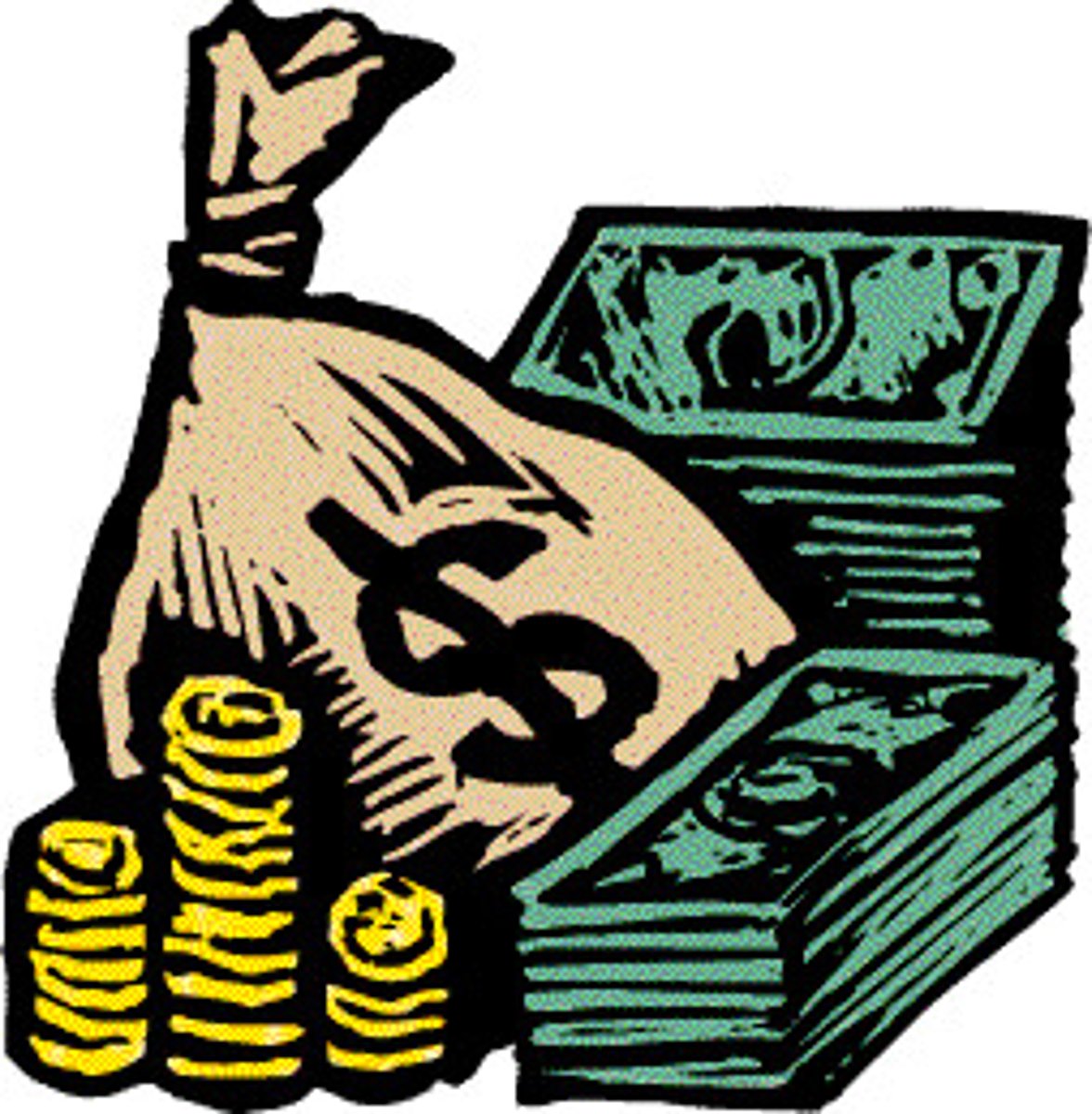
They organize a boycott
How did the colonists react to the Stamp Act?
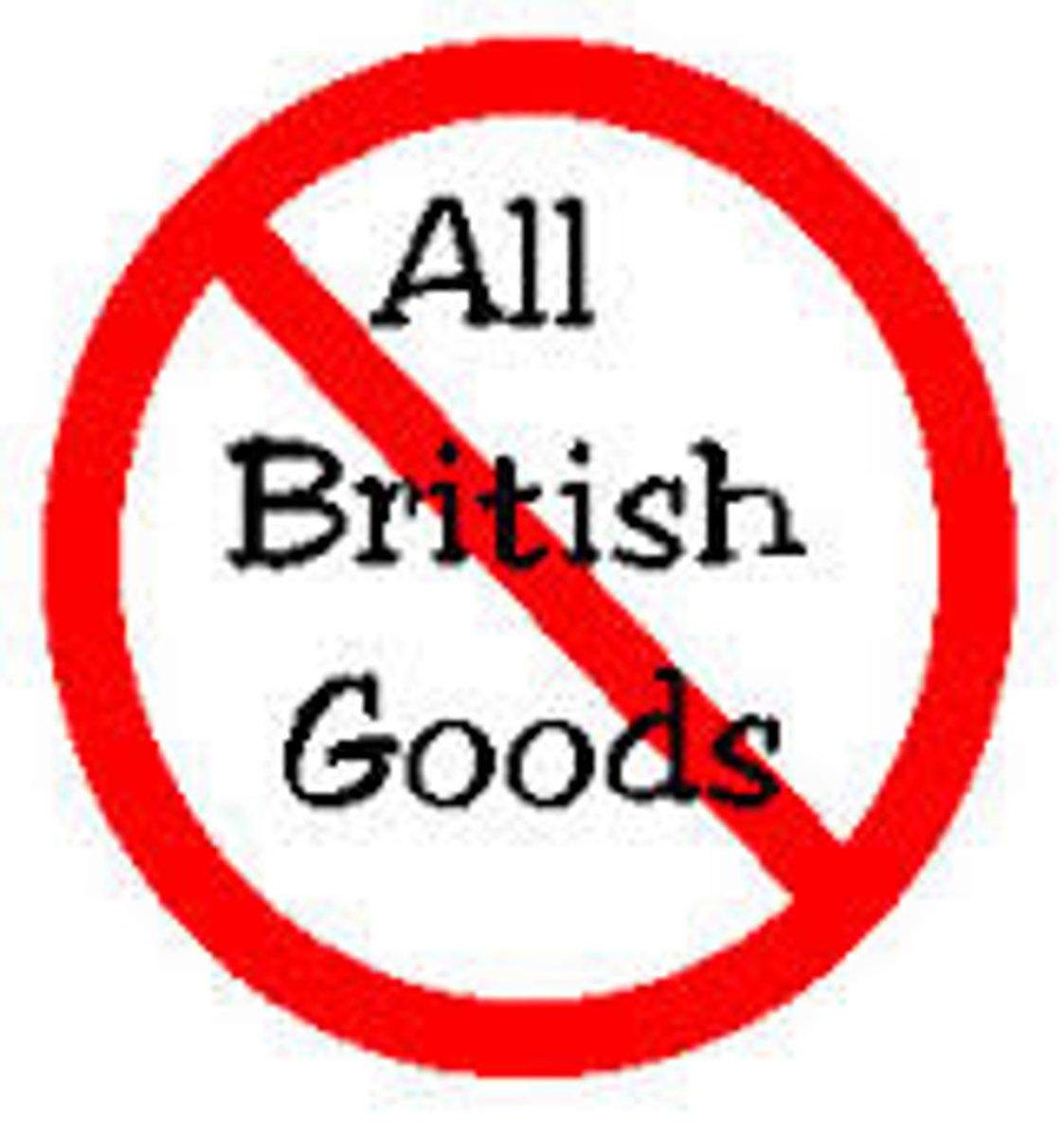
No taxation without representation
Colonists did not feel they should be paying taxes to a government that was not hearing their voice. This is called?
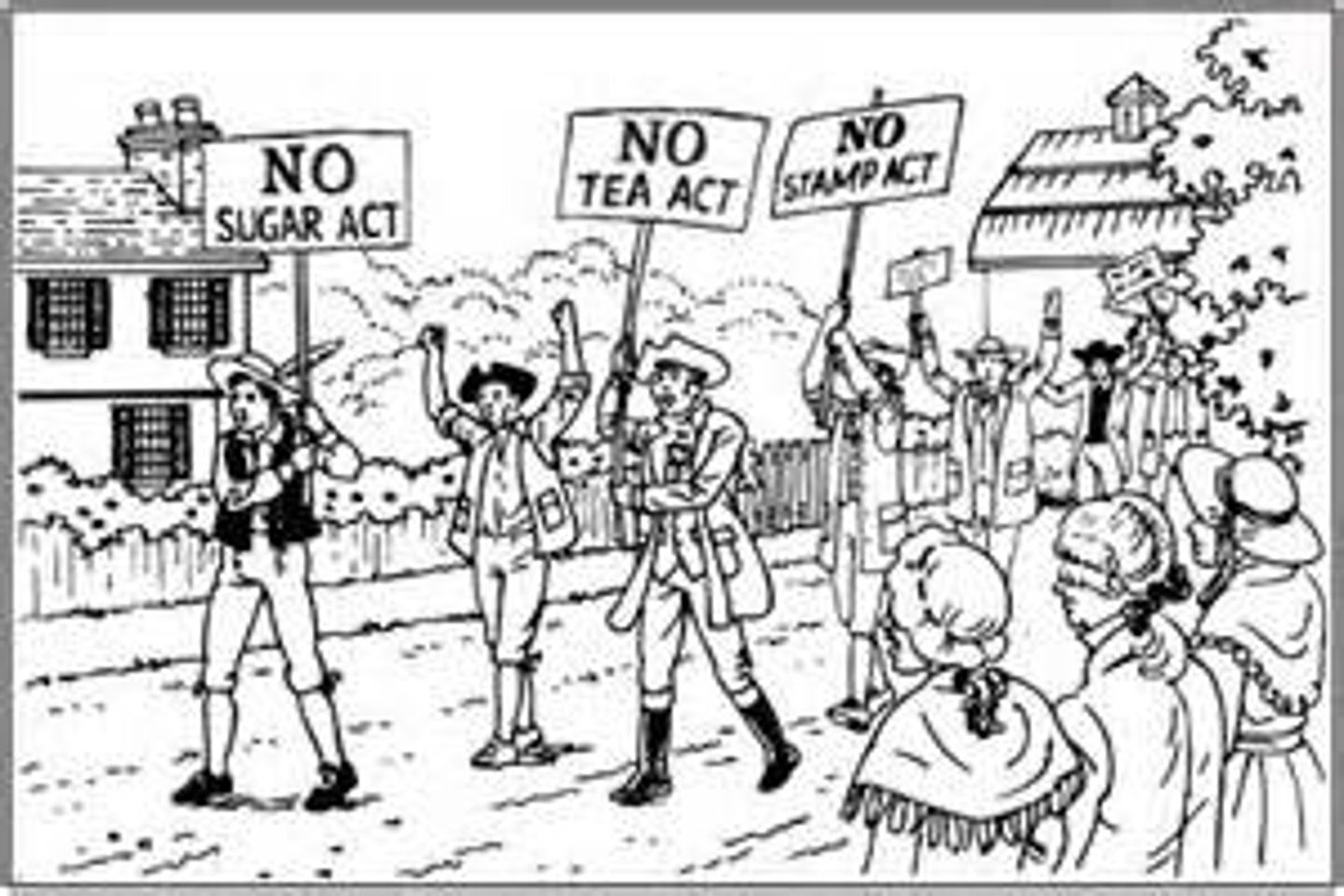
Tories, Loyalist
What were people who supported the British called?
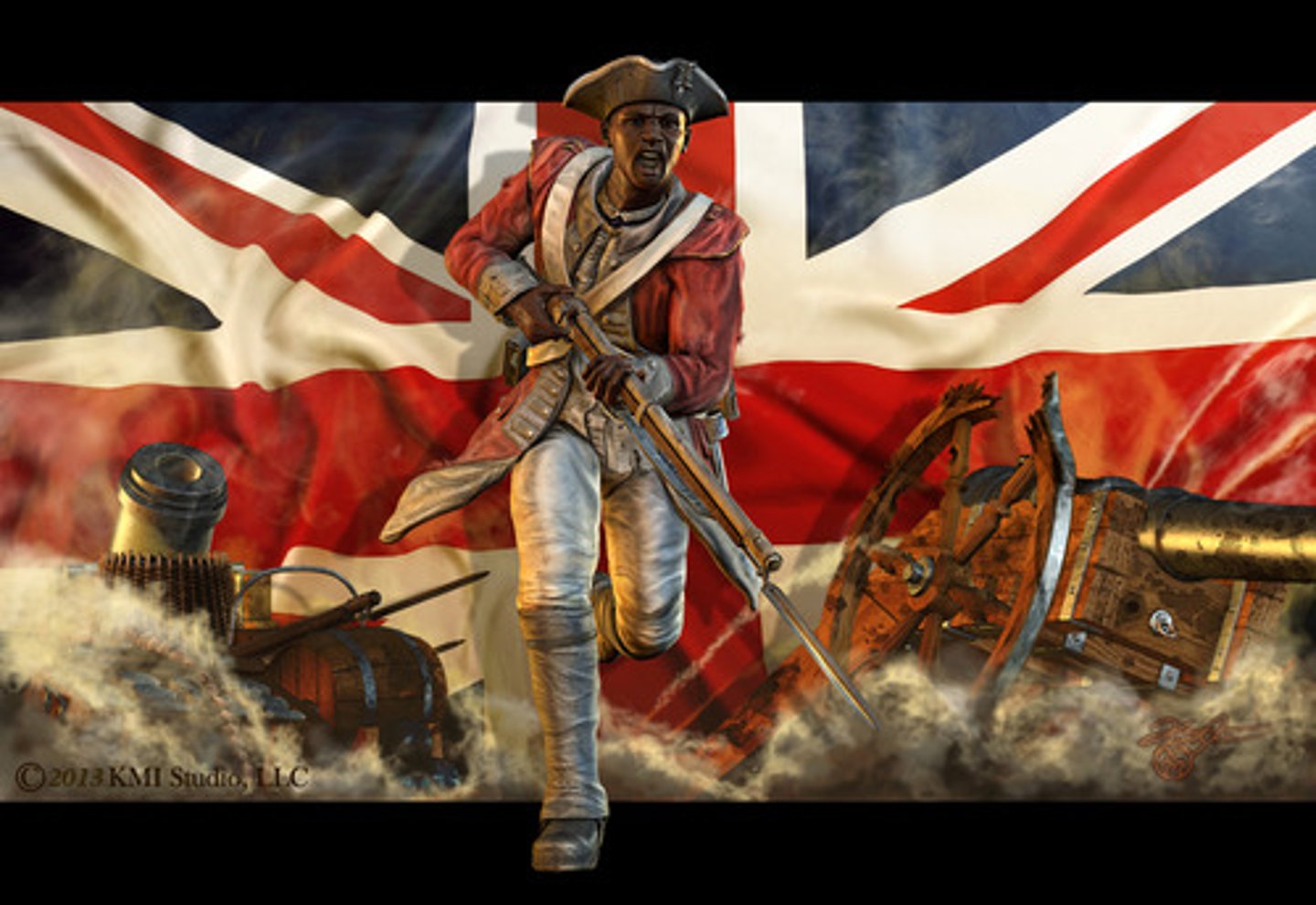
To seize weapons and ammunition
Main reason that the British were going to Concord

Patriot
Person who wanted the colonies to declare independence from Britain/England.
John Locke
Philosopher who wrote that all humans are equal and should live in freedom and liberty. He believed in human rights.
Reasons people supported Loyalists
Believed king's power from God, that king was wise and experienced, that ordinary people did not know how to run a country. Felt Britain was a great empire, and did not wish to fight them. Pride.
Reasons people supported Patriots
Upset over loss of fair trials and voting rights, wanted free trade, less taxes, and believed in the rights of people to choose a fair leader.
Intolerable Acts
In response to Boston Tea Party, 4 acts passed in 1774, Port of Boston closed, reduced power of assemblies in colonies, permitted royal officers to be tried elsewhere, provided for quartering of troop's in barns and empty houses.
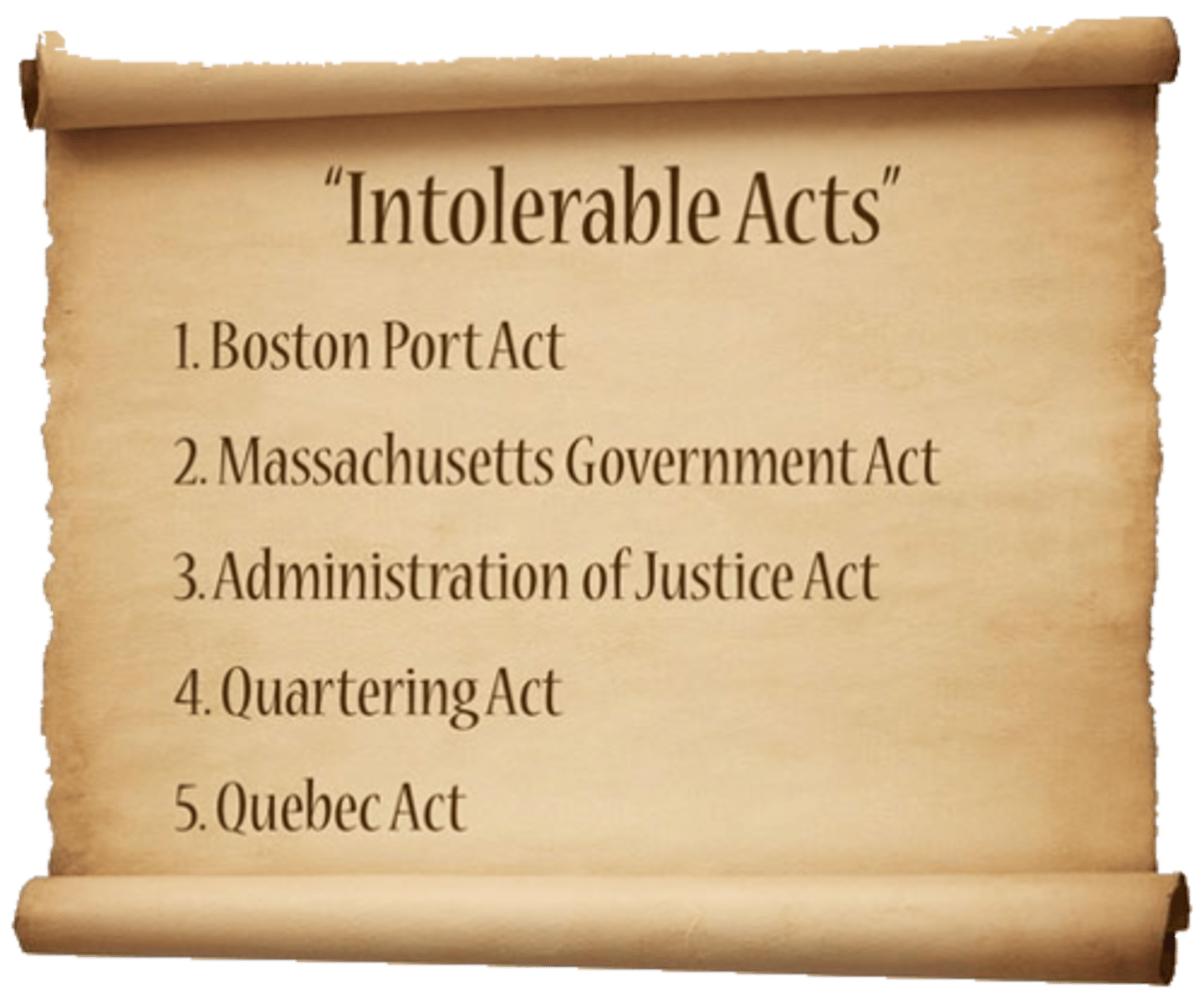
Mercantilism
an economic policy under which nations sought to increase their wealth and power by obtaining large amounts of gold and silver and by selling more goods than they bought
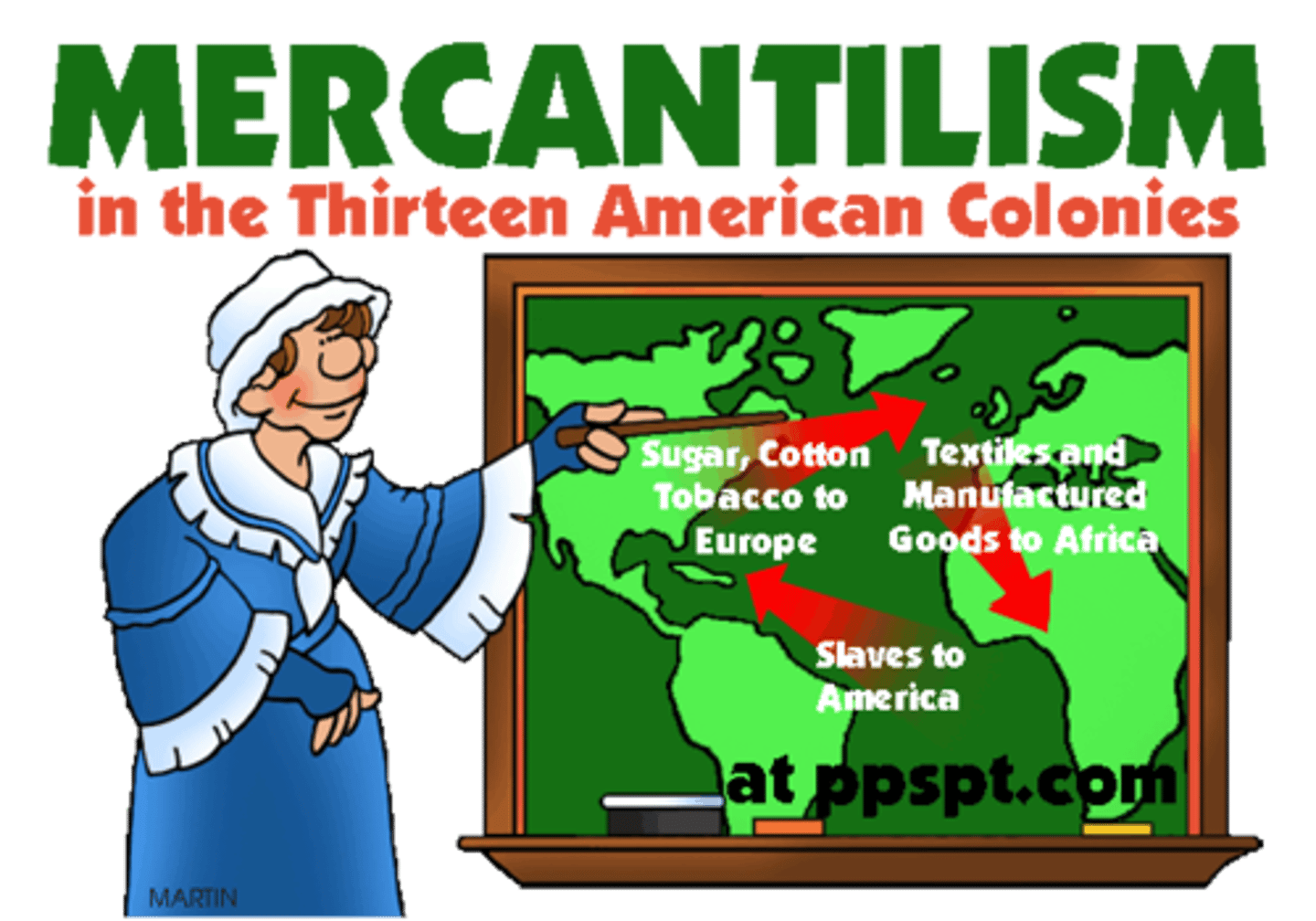
Thomas Paine
Patriot and writer whose pamphlet Common Sense, published in 1776, convinced many Americans that it was time to declare independence from Britain. He also wrote The American Crisis to urge colonists to join the fight against the British.
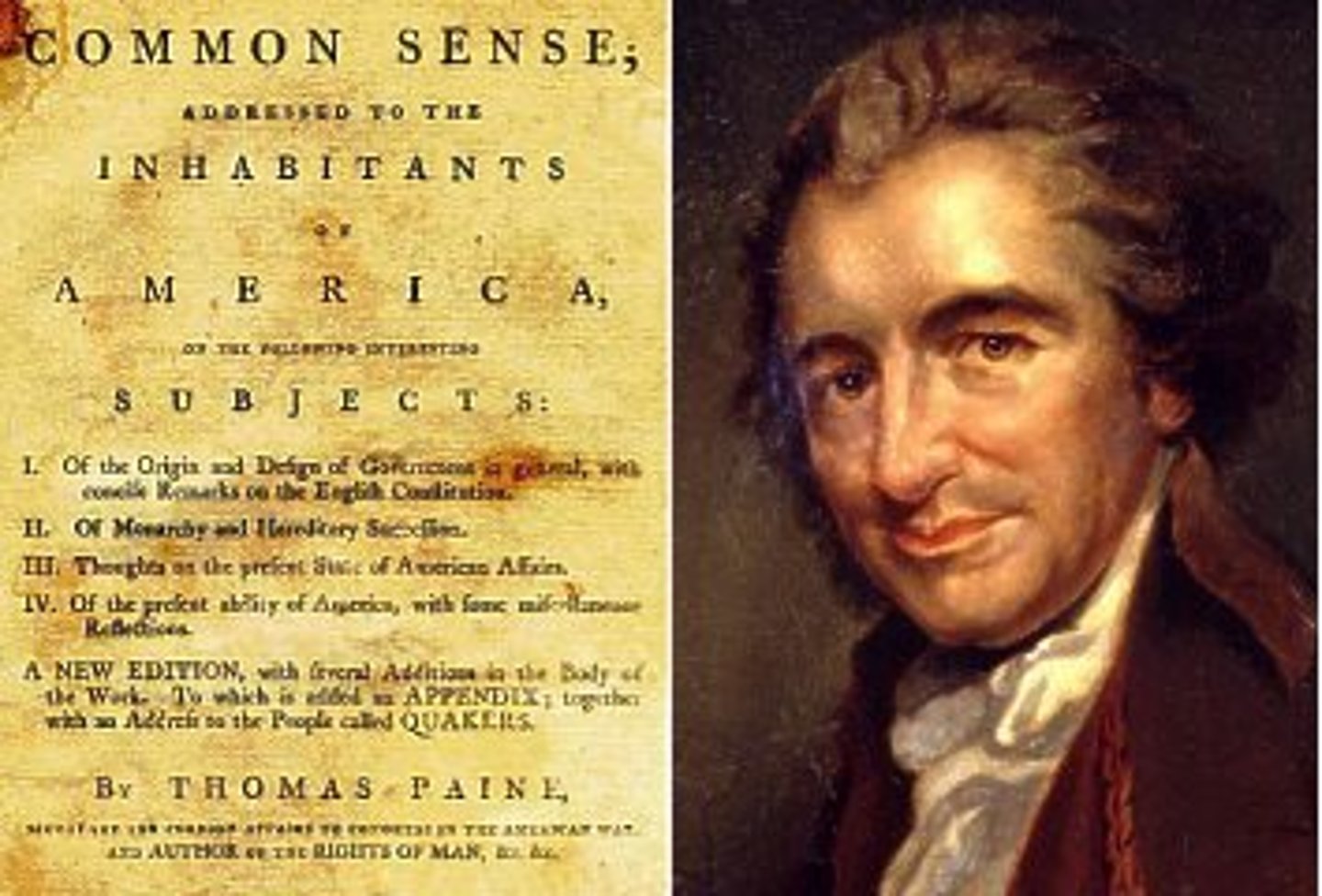
Treaty of Paris of 1783
This treaty ended the Revolutionary War, recognized the independence of the American colonies, and granted the colonies the territory from the southern border of Canada to the northern border of Florida, and from the Atlantic coast to the Mississippi River.
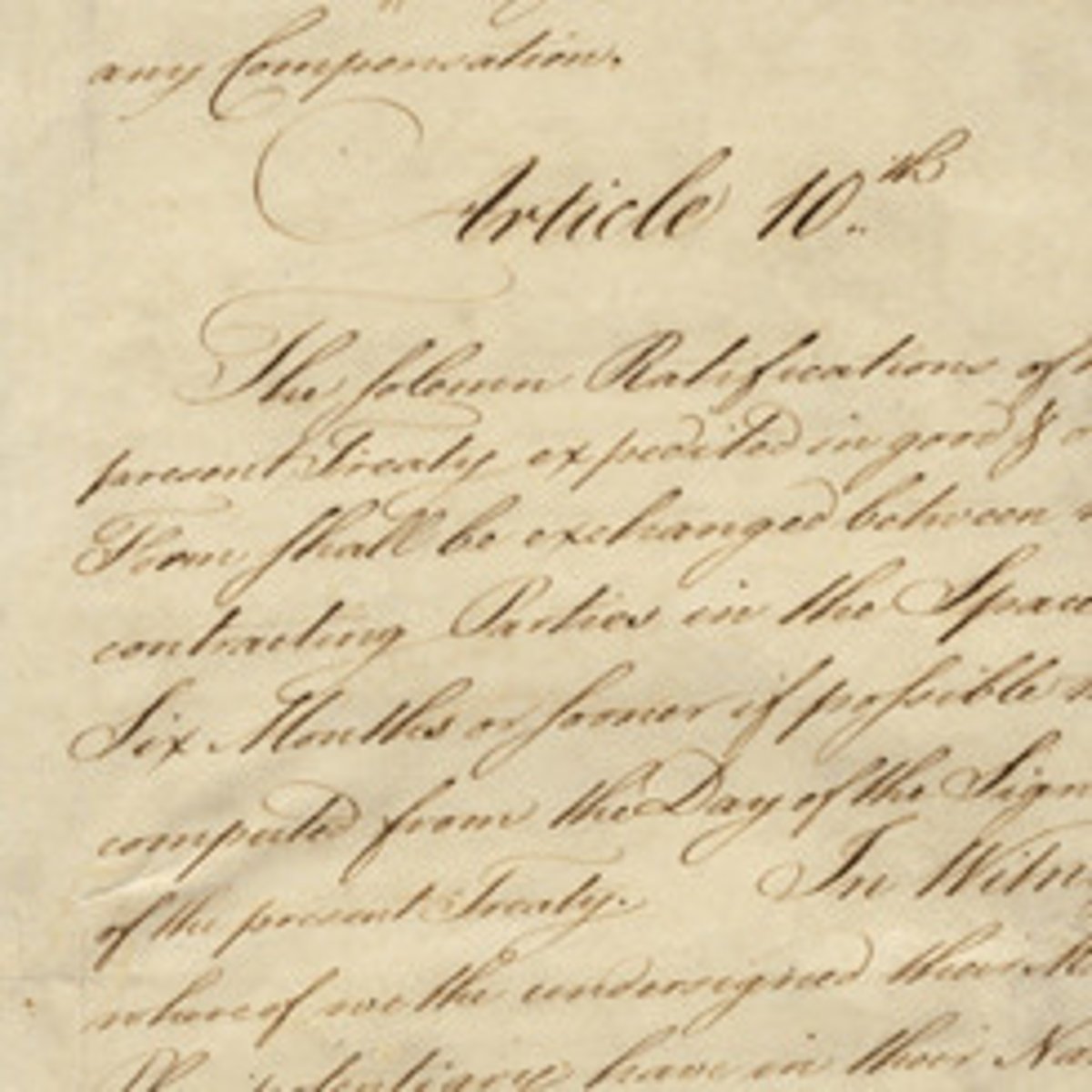
First Continental Congress
September 1774, delegates from twelve colonies sent representatives to Philadelphia to discuss a response to the Intolerable Acts
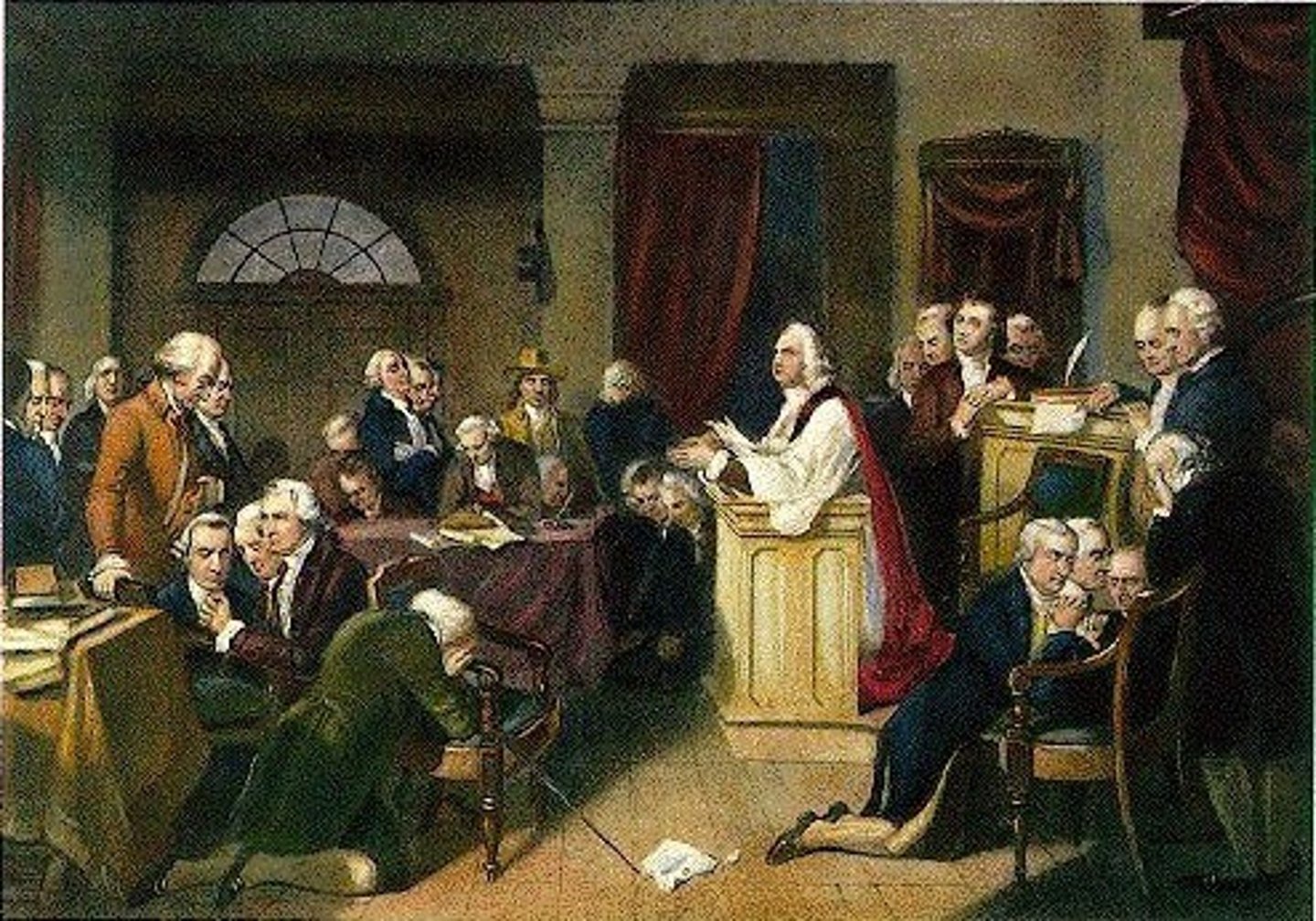
Second Continental Congress
They organized the Continental Army, called on the colonies to send troops, selected George Washington to lead the army, and appointed the comittee to draft the Declaration of Independence.
Common Sense
A pamphlet written by Thomas Paine that claimed the colonies had a right to be an independent nation.
Sons of Liberty
a group of colonists who formed a secret society to oppose British policies at the time of the American Revolution.
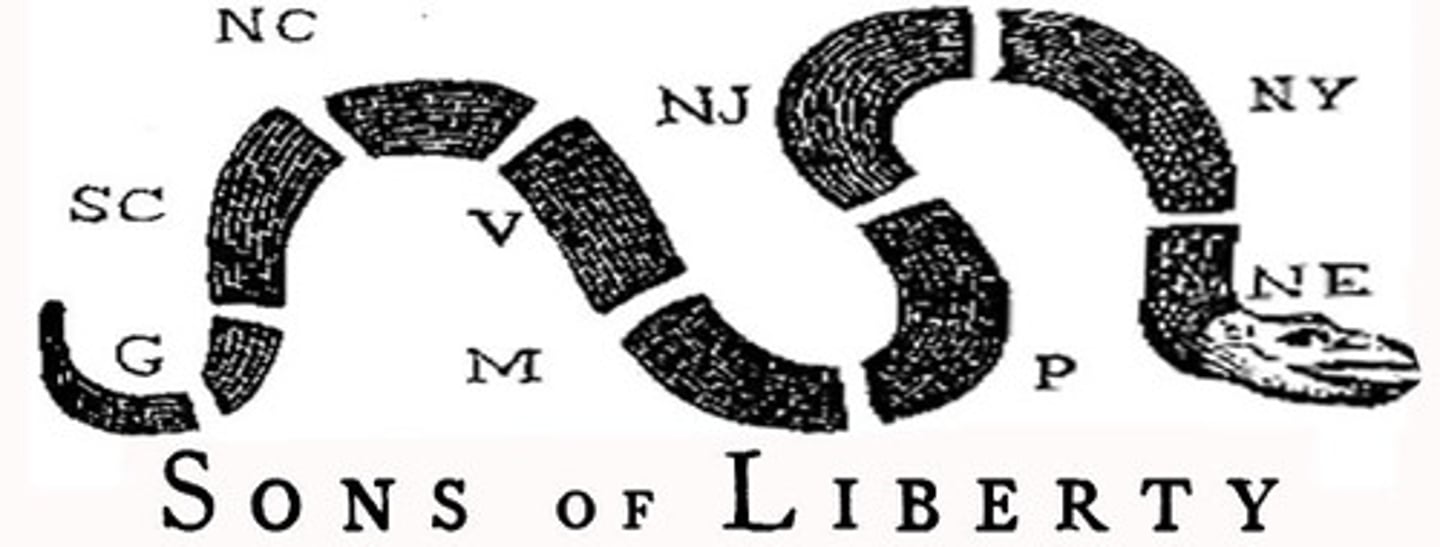
What were the strengths of the British?
They had a strong well-trained army and navy along with a strong central government with food, ammunition and the support of colonial loyalists and Native Americans.
unalienable rights stated in the Declaration of Independence
life, liberty and the pursuit of happiness
Quartering Act
March 24, 1765 - Required the colonials to provide food, lodging, and supplies for the British troops in the colonies.
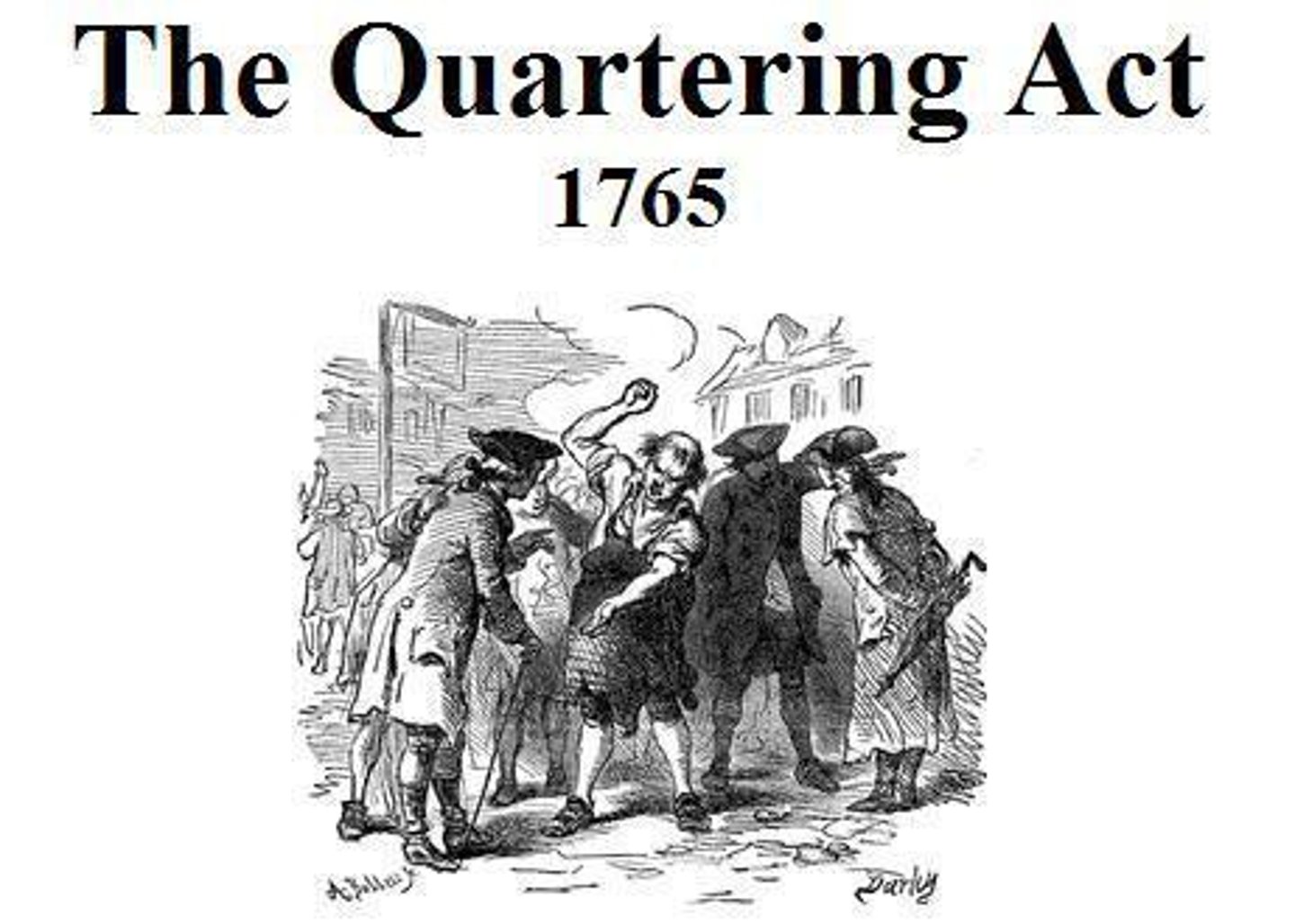
Tea Act
Tax on all British tea
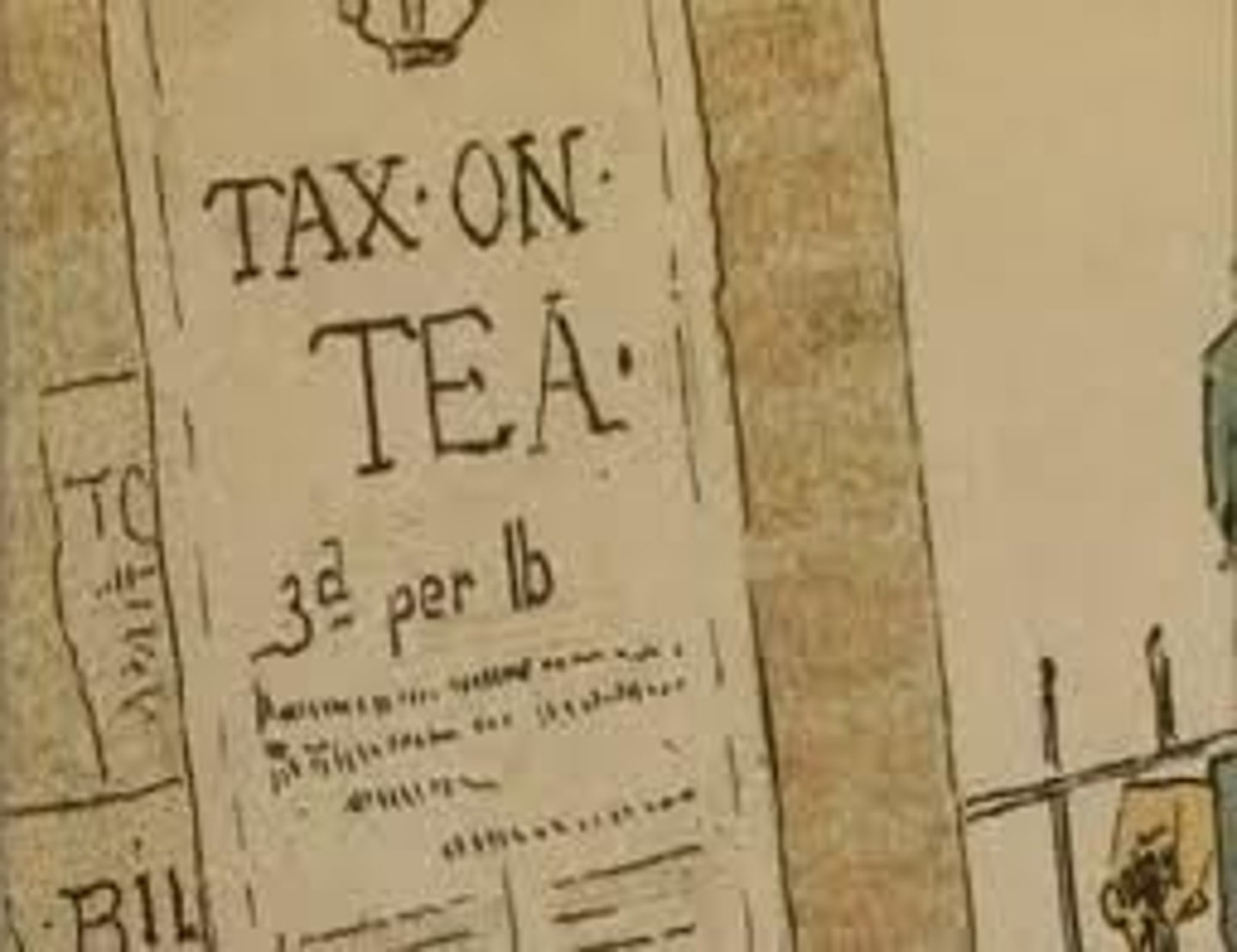
salutary neglect
allowed the colonies to develop their own government and way of life due to Britain's neglect
Albany Plan of Union
Benjamin Franklin's idea of unifying colonists' efforts in trade, military, and other purposes against Great Britain; Franklin utilized the Join or Die political cartoon in the plan
Great Awakening
The religious revival that swept through the colonies; contributed to the questioning of authority and tradition
Enlightenment
Enlightenment thinkers in Britain, in France and throughout Europe questioned traditional authority and embraced the notion that humanity could be improved through rational change; also called the Age of Reason